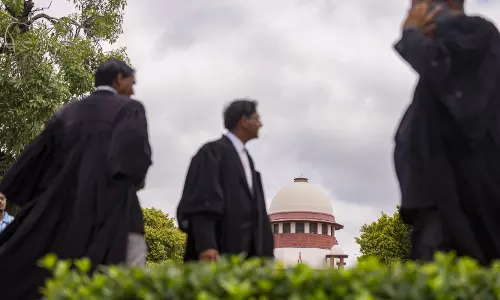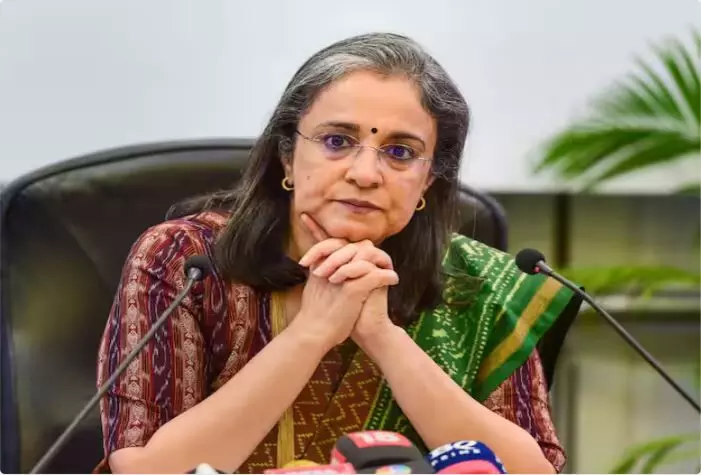
Noose tightens on SEBI's Madhabi as she faces allegations of receiving Rs 16.8 crore from ICICI
text_fieldsMadhabi Puri Buch, the chairperson of the Securities and Exchange Board of India (SEBI), whose integrity in office regarding the investigation into Adani Group's alleged stock price manipulation and money laundering has been questioned by Hindenburg Research, also confronts the Congress' allegation of receiving income from ICICI Bank.
The Congress party on Monday claimed that Buch received a substantial income of Rs 16.8 crore from ICICI Bank between 2017 and 2024, which significantly exceeded her earnings from SEBI, where she reportedly received Rs 3.3 crore during the same period. This, the Congress argued, represented a clear conflict of interest, especially given her position in the regulatory body, The Wire reported.
The Congress further alleged that Buch’s earnings from ICICI Bank violated Section 54 of the SEBI Employees’ Service Regulations, 2001, which prohibits SEBI officials from holding an office of profit. The party also claimed that her actions were in breach of the market regulator’s Code on Conflict of Interest for Board Members. Buch, however, has previously stated that she recuses herself from any proceedings involving the ICICI Group, in an attempt to mitigate potential conflicts.
Despite her statement, the Congress insisted that Buch had adjudicated complaints against ICICI and its affiliates, which they argued only heightened the appearance of impropriety. The party suggested that these actions could be perceived as quid pro quo favours, referencing a specific instance where SEBI granted an exemption to the ICICI Group in a merger and acquisition case.
Congress spokesperson Pawan Khera questioned whether the Appointments Committee of the Cabinet, led by Prime Minister Narendra Modi, was aware of these allegations when they approved Buch’s appointment. The party also demanded clarification from ICICI Bank regarding whether it had disclosed the salary and Employee Stock Ownership Plan (ESOP) benefits paid to Buch while she was a member of SEBI.
The allegations against Buch have emerged against the backdrop of broader criticism faced by SEBI, particularly in relation to its handling of a merger between ICICI Bank Limited and its subsidiary, ICICI Securities.
According to reports, the market regulator had granted an exemption to ICICI Bank in June 2023, allowing it to bypass the mandatory bidding process required for buying out shares of a listed company and delisting them from stock exchanges. This exemption was granted despite ICICI Bank Limited and ICICI Securities not being in the same line of business, which typically precludes such leniency.
The merger, which involved a share swap ratio where ICICI Bank offered 67 shares for every 100 shares of ICICI Securities, was approved by a significant majority of shareholders in a vote held in March 2023. However, more than 100 public and non-institutional investors of ICICI Securities subsequently filed a class action suit in April, claiming that their personal data had been improperly shared with ICICI Bank ahead of the vote. This sharing of data was later acknowledged by SEBI as inappropriate, with the regulator issuing an administrative warning to both ICICI Bank and ICICI Securities.
The shareholders also raised concerns about the fairness of the swap ratio, alleging that it had caused them significant financial losses. Despite these allegations, both ICICI Bank and ICICI Securities defended the terms of the merger, citing independent valuation experts and multiple proxy advisory firms that deemed the pricing fair.
The situation took a further legal turn when, on August 10, the Bombay High Court ordered SEBI to disclose the exemption letter granted to ICICI Securities, following a petition by an ICICI Securities shareholder. The court, however, prohibited the sharing of this letter with third parties.






















